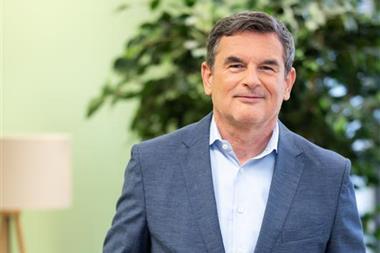Negotiations about the choice for a new defined contribution (DC) arrangement are in deadlock at many companies. Employers prefer the flexible arrangement while trade unions want the solidarity arrangement with more collective features.

According to consultants Aon and PwC, which have been primarily hired by employers to advise on the DC transition, the flexible arrangement has several advantages, including the choice for a specific risk profile.
Additionally, solidarity elements such as collective pension benefits and a risk-sharing buffer, can be added. In fact, such a “dressed-up flexible arrangement” combines the best of both contracts, said Aon in a position paper on the topic, published today.
Employers see these benefits, but unions are not open to the idea, according to Aon and PwC. “Unions often just say: we want the solidarity arrangement, without providing much in the way of substantiation,” said Ronald Doornbos of PwC.
“Unions offer no room for anything other than the solidarity arrangement,” noted Corine Reedijk of Aon.
According to Reedijk, negotiations about a new pension arrangement are currently in deadlock at five of Aon’s clients. At PwC, this is the case at six or seven companies, according to Doornbos. This all concerns large companies who each have their own collective labour agreement.
As a result, trade unions have a strong voice when it comes to negotiating labour conditions including the pension arrangement. The trade unions announced their commitment to the solidarity arrangement in May 2021 and have since stuck to this with vigour.
Impasse
“I think that at these types of companies there is currently more often than not an impasse in the talks,” confirmed independent consultant Erwin Bosman, who assists the unions in their negotiations at various companies.
He is skeptical about the alleged benefits of freedom of choice offered by the flexible arrangement. For his part, he believes that the proponents of the flexible arrangement have few arguments in favour of it.
“For the unions, what matters most is the result in terms of benefits,” Bosman said, adding: “The solidarity arrangement better protects against headwinds.”
Freedom of choice
In the case for the flexible arrangement, PwC’s Doornbos said: “In the mandatory risk appetite surveys conducted by pension funds, you sometimes see the preferences of participants vary considerably. Within the flexible arrangement, you don’t have to cram all these into a single investment policy.”
He added that the transparency offered by the flexible arrangement is also an advantage. “The relationship between investment results and what you get in your pension account is clearer.”
Both Reedijk and Doornbos think it’s a shame there is so little interest in the flexible arrangement.
“You have consider what suits your population,” Doornbos said, adding: “That doesn’t always happen.”
The new Dutch pension law includes two options for a reason, Reedijk said. “We want to have a discussion on substance. In companies where there are no unions at the table, but a workers’ council – that does happen – and the flexible arrangement has been chosen there several times. So the need for it does exist.”
The importance of freedom of choice offered by the flexible arrangement is downplayed by trade union consultant Bosman. “How many people actually want this? If you weigh freedom of choice against the pension outcome itself, the benefits people get and to what extent this is guaranteed, we think the latter is more important,” he said.
Only if the funding ratio is low when the actual transition from defined benefit to DC occurs, Bosman is “less adamant” about the benefits of solidarity as the fund would in such a case struggle to fill its buffer.
Deadline
A choice must be made this year at the companies involved, consultants believe. How will social partners get out of the deadlock? “In the deals I see so far, it often ends up being the solidarity arrangement after all,” Bosman explained.
Doornbos agrees: “For employers, the level of contributions is usually the most important element in the negotiations; so they often concede little on that. If the unions want the solidarity arrangement in exchange, the employers often accept that as a compromise.”
About three quarters of Dutch company pension funds with collective bargaining agreements will end up with the solidarity arrangement, Doornbos estimated. “And when unions have a seat at the table, the flexible arrangement will really be the exception.”
This article was first published on Pensioen Pro, IPE’s Dutch sister publication. It was translated and adapted for IPE by Tjibbe Hoekstra.

















